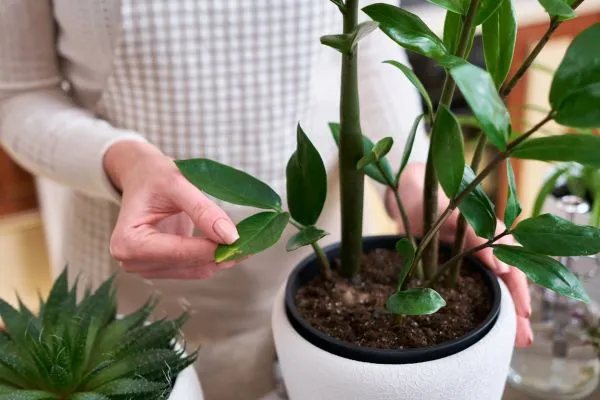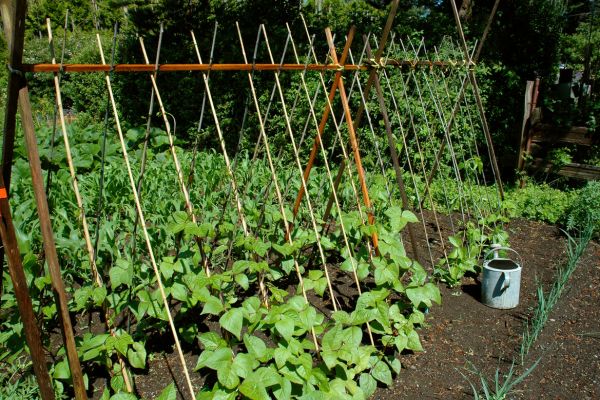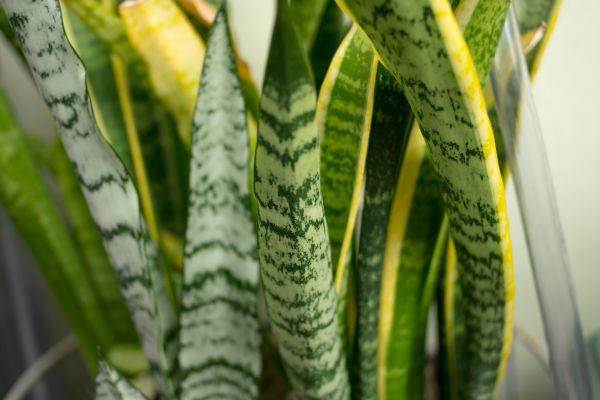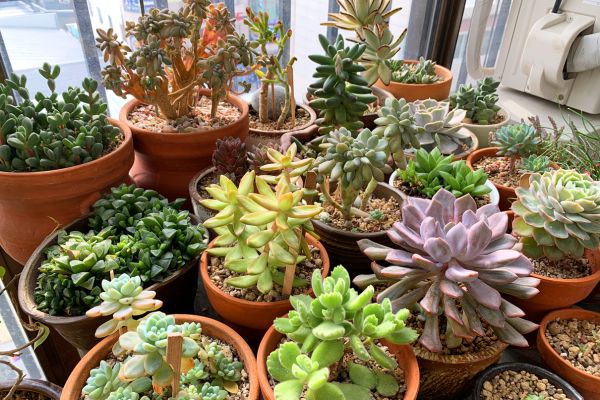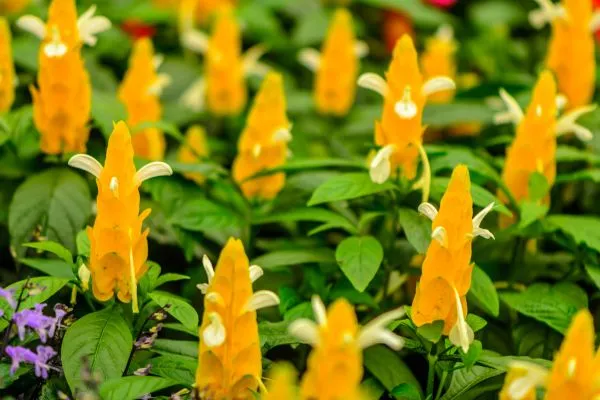7 Essential Tips for a Stunning, Well-Cared for Organic Garden
Have one organic garden Stunning and well-kept is the dream of many people who are passionate about nature and the beauty of plants. In addition to providing a space of tranquility and connection with nature, a organic garden Well cared for, it is a real treat for the eyes, whether with its colorful flowers, its lush foliage or its juicy fruits. However, to achieve this idyllic vision, it is necessary to understand that gardening is an art that requires care, patience and knowledge.
In this article, we will present seven essential tips that will help you transform your garden in a stunning setting, full of life and beauty. We will cover everything from planning and soil preparation to controlling pests naturally, in addition to highlighting the importance of constant care and love for gardening. Let's dive into this universe of colors and aromas and discover how to make your dream garden a reality.
1: Garden Planning
The first step to creating a stunning garden is careful planning. Before you get your hands in the dirt, it's essential to have a clear vision of what you want to achieve with your garden. Consider not only the space available, but also the style and function of the garden you want to create. Think about different areas, such as a recreational area with a lawn, a bed of colorful flowers or an organic vegetable garden.
When planning your garden, take into account the incidence of sunlight in each area throughout the day. This will help you choose the right plants for each location, ensuring they receive the appropriate amount of light to thrive. Additionally, consider the topography of the land and soil drainage. Some plants prefer moister soils, while others grow better in well-drained soils.
Another important aspect of planning is plant selection. Choose varieties that adapt to your region's climate and are suitable for the size of your garden. Native plants are often an excellent choice because they are adapted to the local climate and require less special care.
2: Healthy Soil, Happy Plants
As mentioned earlier, soil is the foundation for healthy plant growth. Before you start planting, it is essential to check the quality of the soil in your garden. Take a pH test to determine whether your soil is acidic, neutral, or alkaline, and adjust it if necessary to ensure a suitable pH for the plants you want to grow.
Enriching the soil with organic matter is one of the best ways to make it healthy and fertile. Composting is an effective technique for transforming kitchen waste and plant material into nutrient-rich fertilizer. Additionally, compost helps improve soil structure, increasing its ability to retain water and nutrients.
Another important practice for keeping soil healthy is mulching, also known as mulching. Mulch helps reduce water evaporation, keeping the soil moist for longer. Furthermore, it acts as a physical barrier that prevents the growth of weeds, keeping the garden cleaner and making the gardener's work easier.
3: Water Wisely
Water is a precious resource in garden, and watering wisely is fundamental to the success of your green space. Establish an efficient watering system, taking into account the specific needs of each plant. Some plants prefer moister soils, while others are more drought tolerant.
An important tip is to water the plants in the morning or late afternoon, when the temperature is milder. This reduces water evaporation and allows plants to absorb moisture more efficiently. Avoid watering during peak sunlight hours as water can evaporate quickly, wasting resources and leaving the soil soggy.
Also consider using drip irrigation systems or hoses with holes to direct water directly to the roots of the plants, avoiding waste. To know when to water, check the soil moisture by placing your finger or a stick in the soil. If it is humid, watering is not necessary; if it's dry, it's time to water the plants.
4: Fertilize Regularly
In addition to healthy soil, plants need nutrients to grow vigorously and produce lush flowers and fruits. Regular fertilization is essential to provide the elements necessary for plant development. Use organic fertilizers or natural fertilizers, such as bone meal, castor bean cake or earthworm humus.
The frequency and amount of fertilizer to be applied vary according to the type of plant and the specific needs of each species. Generally, fertilization can be done every three or four months, during the plants' growing season. Avoid exaggerating the amount of fertilizer, as excess can cause the accumulation of salts in the soil and harm plant development.
5: Smart Pruning
Pruning is an essential practice to ensure the healthy growth of plants and to maintain the shape and beauty of the garden. There are different types of pruning, each with a specific purpose. Cleaning pruning involves removing dead, diseased or damaged branches to encourage the growth of new, healthy shoots.
Formation pruning is carried out to give a specific shape to the plant or to prevent it from growing in a disorganized way. This type of pruning is common in ornamental shrubs and small trees. Rejuvenation pruning is a more drastic technique used to revitalize old or weakened plants by promoting healthy new growth.
When pruning, be sure to use clean, sharp cutting tools to avoid injuring the plant. Additionally, sterilize tools after use to prevent the transmission of diseases from one plant to another.
6: Natural Pest Control
Pests are a common concern in any garden, but the use of chemical pesticides can have negative consequences for the environment and human health. Opt for natural pest control methods, which are effective and safe for your garden ecosystem.
One of the best ways to prevent pest problems is to plant resistant species and cultivate a diverse garden. The diversity of plants attracts a variety of insects, which helps balance the garden's ecosystem, reducing the proliferation of pests.
Another effective strategy is the use of repellent plants, which help ward off unwanted insects. For example, marigold is known to repel aphids and nematodes, while basil wards off flies and mosquitoes.
Another natural method of pest control is the introduction of natural predators such as ladybugs, praying mantises and insectivorous birds. These predators will help maintain the balance of your garden's ecosystem by devouring pests and keeping their population in check.
7: Appreciate and Care
Taking care of a garden goes beyond planting and basic maintenance. It is an experience that requires connection and appreciation for the nature around you. Take time regularly to enjoy the beauty of your garden and watch your plants grow. Follow the development of flowers, the ripening of fruits and the lives of bees and butterflies that visit your garden.
Pay attention to the specific needs of each plant. Some may require more frequent watering, others may prefer drier soils. Being aware of the characteristics and peculiarities of the plants in your garden will allow you to provide the appropriate care for each of them.
Create a maintenance routine, setting aside time regularly for tasks such as weeding, cleaning and inspecting for potential problems. Prevention is always better than a cure when it comes to caring for a garden, and being aware of signs of problems can help resolve them before they become more serious.
Finally, share your garden with friends and family, inviting them to enjoy the beauty of the space you have so lovingly created. Sharing the experience of a well-kept garden is a wonderful way to spread joy and inspire others to connect with nature.
Conclusion
Create and maintain a garden Beautiful and well-kept is a rewarding job that requires dedication, knowledge and passion for nature. Careful planning, healthy soil, adequate watering, regular fertilization, smart pruning, natural pest control and constant care are the pillars that support the success of any garden.
Remember that gardening is an ongoing journey of learning, where each season brings new challenges and discoveries. Don't be afraid to experiment and explore new techniques, and allow your garden to become a reflection of your love and appreciation for nature.
May the seven essential tips shared in this article be an inspiration for you to create a garden that delights and moves everyone who visits it. By dedicating yourself to your garden with care and attention, it will become a space of beauty and serenity, where life will flourish in all its glory.

